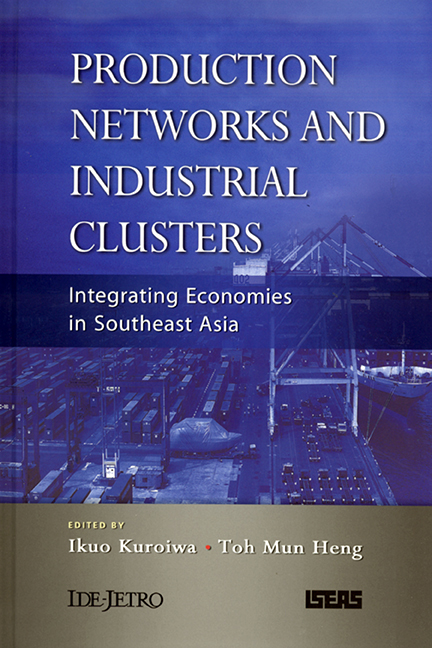Preface
Published online by Cambridge University Press: 21 October 2015
Summary
In Southeast Asia, de facto economic integration preceded de jure economic integration. Unlike in Europe, firms in Southeast Asia have expanded their production networks without any formal framework of economic cooperation, and as a result, economies in Southeast Asia are increasingly integrated through the trade of parts and components rather than final products. The drivers for the expanding production networks are rapid decline in transport and logistics costs as well as export oriented industrialization policy adopted by Southeast Asian economies. However, further advancement of production networks cannot be achieved without progress of de jure economic integration — notably FTAs and other regional economic cooperation are crucially important.
Production networks in Southeast Asia have often advanced in tandem with industrial clustering. Without industrial clustering, the competitiveness of industry cannot be sustained. Clustering enables companies to tap on agglomeration economies, reduced transport costs, and development of tacit knowledge that would otherwise stifle. These help companies to contain rising labour or land cost, and retain profitable production activities in the country. Singapore electronics industry cluster, for example, still maintains competitiveness and continues to move up the value chain, while other activities — especially standardized labourintensive or land-intensive activities — are decanted and relocated to the neighbouring Southeast Asian countries.
In this study, we investigate how the production networks and industrial clusters have progressed in Southeast Asia, especially in Singapore, Malaysia, Indonesia, and Thailand. The analytical frameworks of Global Value Chain (GVC), Global Production Network (GPN) and fragmentation theory are being used to elucidate the development of industries and production networks in the countries considered. These approaches look at similar phenomena from different perspectives, providing important insights for formulating development policies. Furthermore, several models of industrial clusters are being considered in the chapters, and some of them are examined using data obtained from field works and surveys.
In Chapter 1, trends of trade and investment in Southeast Asia are demonstrated, followed by an overview of economic theories on production networks and industrial clusters. In the first part of the book (see Chapters 2–4), the authors focus on the production networks and industrial clusters in Southeast Asia based on the trade statistics and other empirical data.
- Type
- Chapter
- Information
- Production Networks and Industrial ClustersIntegrating Economies in Southeast Asia, pp. xiii - xivPublisher: ISEAS–Yusof Ishak InstitutePrint publication year: 2008



